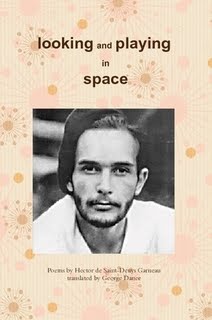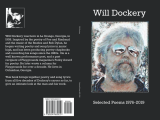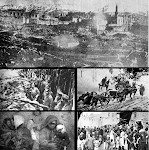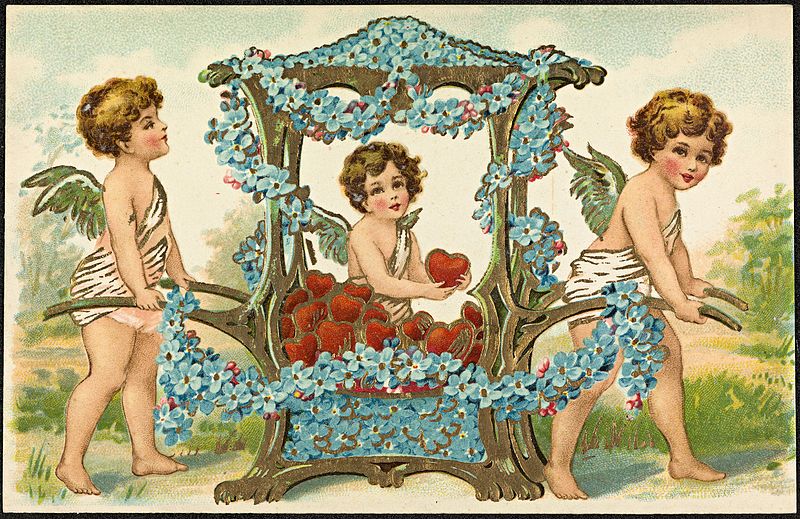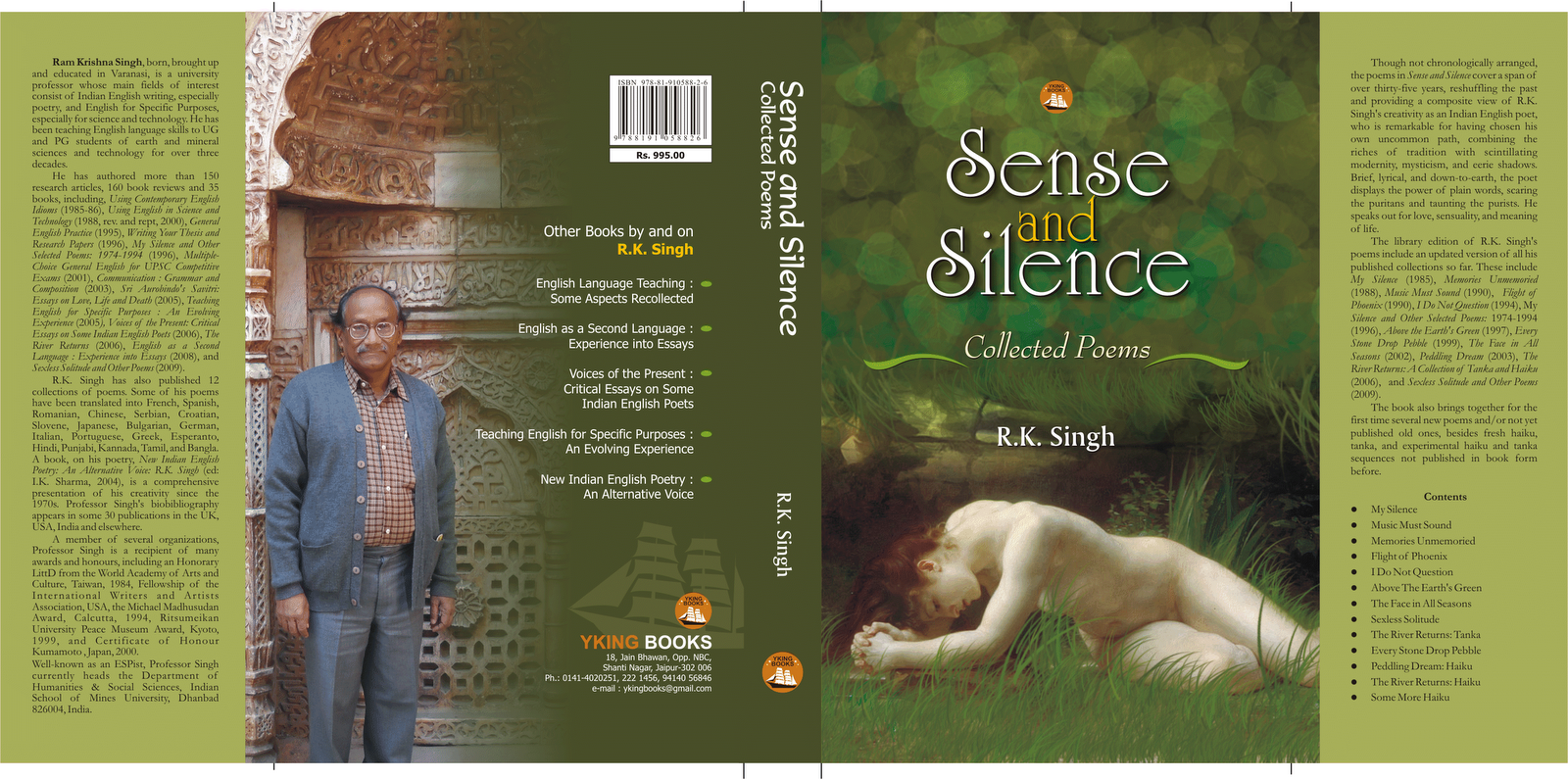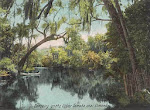December
Glad Christmas comes, and every hearth
Makes room to give him welcome now,
E’en want will dry its tears in mirth,
And crown him with a holly bough;
Though tramping ’neath a winter sky,
O’er snowy paths and rimy stiles,
The housewife sets her spinning by
To bid him welcome with her smiles.
Each house is swept the day before,
And windows stuck with ever-greens,
The snow is besom’d from the door,
And comfort crowns the cottage scenes.
Gilt holly, with its thorny pricks,
And yew and box, with berries small,
These deck the unused candlesticks,
And pictures hanging by the wall.
Neighbours resume their annual cheer,
Wishing, with smiles and spirits high,
Glad Christmas and a happy year,
To every morning passer-by;
Milkmaids their Christmas journeys go,
Accompanied with favour’d swain;
And children pace the crumping snow,
To taste their granny’s cake again.
The shepherd, now no more afraid,
Since custom doth the chance bestow,
Starts up to kiss the giggling maid
Beneath the branch of misletoe
That ’neath each cottage beam is seen,
With pearl-like berries shining gay;
The shadow still of what hath been,
Which fashion yearly fades away.
The singing wates, a merry throng,
At early morn, with simple skill,
Yet imitate the angels song,
And chant their Christmas ditty still;
And, ’mid the storm that dies and swells
By fits—in hummings softly steals
The music of the village bells,
Ringing round their merry peals.
When this is past, a merry crew,
Bedeck’d in masks and ribbons gay,
The “Morris-dance,” their sports renew,
And act their winter evening play.
The clown turn’d king, for penny-praise,
Storms with the actor’s strut and swell;
And Harlequin, a laugh to raise,
Wears his hunch-back and tinkling bell.
And oft for pence and spicy ale,
With winter nosegays pinn’d before,
The wassail-singer tells her tale,
And drawls her Christmas carols o’er.
While ’prentice boy, with ruddy face,
And rime-bepowder’d, dancing locks,
From door to door with happy pace,
Runs round to claim his “Christmas box.”
The block upon the fire is put,
To sanction custom’s old desires;
And many a fagot's bands are cut,
For the old farmers’ Christmas fires;
Where loud-tongued Gladness joins the throng,
And Winter meets the warmth of May,
Till feeling soon the heat too strong,
He rubs his shins, and draws away.
While snows the window-panes bedim,
The fire curls up a sunny charm,
Where, creaming o’er the pitcher’s rim,
The flowering ale is set to warm;
Mirth, full of joy as summer bees,
Sits there, its pleasures to impart,
And children, ’tween their parent’s knees,
Sing scraps of carols o’er by heart.
And some, to view the winter weathers,
Climb up the window-seat with glee,
Likening the snow to falling feathers,
In Fancy’s infant ecstasy;
Laughing, with superstitious love,
O’er visions wild that youth supplies,
Of people pulling geese above,
And keeping Christmas in the skies.
As tho’ the homestead trees were drest,
In lieu of snow, with dancing leaves;
As tho’ the sun-dried martin’s nest,
Instead of i’cles hung the eaves;
The children hail the happy day—
As if the snow were April’s grass,
And pleas’d, as ’neath the warmth of May,
Sport o’er the water froze to glass.
Thou day of happy sound and mirth,
That long with childish memory stays,
How blest around the cottage hearth
I met thee in my younger days!
Harping, with rapture’s dreaming joys,
On presents which thy coming found,
The welcome sight of little toys,
The Christmas gift of cousins round.
The wooden horse with arching head,
Drawn upon wheels around the room;
The gilded coach of gingerbread,
And many-colour’d sugar plum;
Gilt cover’d books for pictures sought,
Or stories childhood loves to tell,
With many an urgent promise bought,
To get to-morrow’s lesson well.
And many a thing, a minute’s sport,
Left broken on the sanded floor,
When we would leave our play, and court
Our parents’ promises for more.
Tho’ manhood bids such raptures die,
And throws such toys aside as vain,
Yet memory loves to turn her eye,
And count past pleasures o’er again.
Around the glowing hearth at night,
The harmless laugh and winter tale
Go round, while parting friends delight
To toast each other o’er their ale;
The cotter oft with quiet zeal
Will musing o’er his Bible lean;
While in the dark the lovers steal
To kiss and toy behind the screen.
Old customs! Oh! I love the sound,
However simple they may be:
Whate’er with time hath sanction found,
Is welcome, and is dear to me.
Pride grows above simplicity,
And spurns them from her haughty mind,
And soon the poet’s song will be
The only refuge they can find.
~~
John Clare
from The Shepherd's Calendar, 1827
[
Poem is in the public domain worldwide]
Read The Shepherd's Calendar complete
John Clare biography





